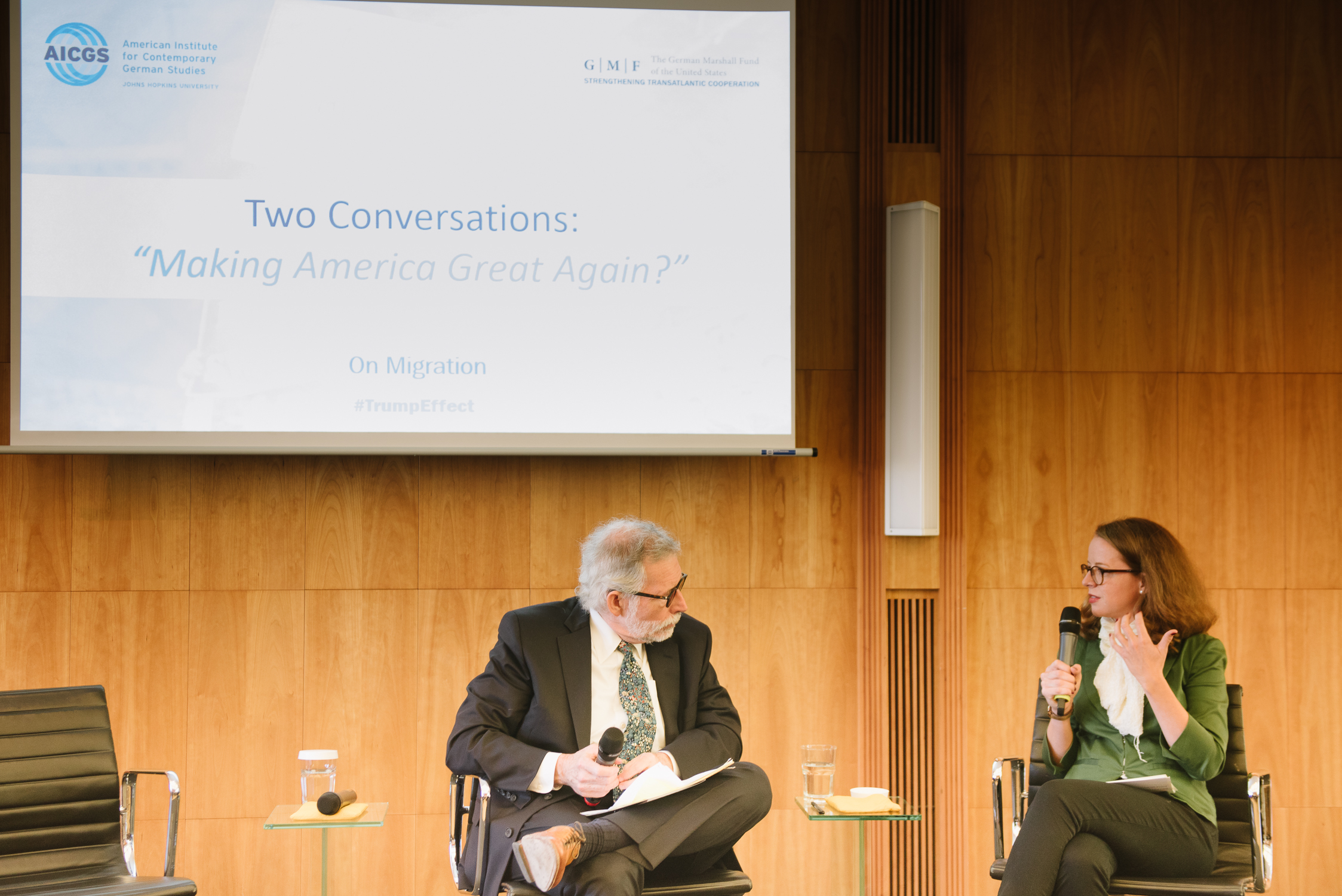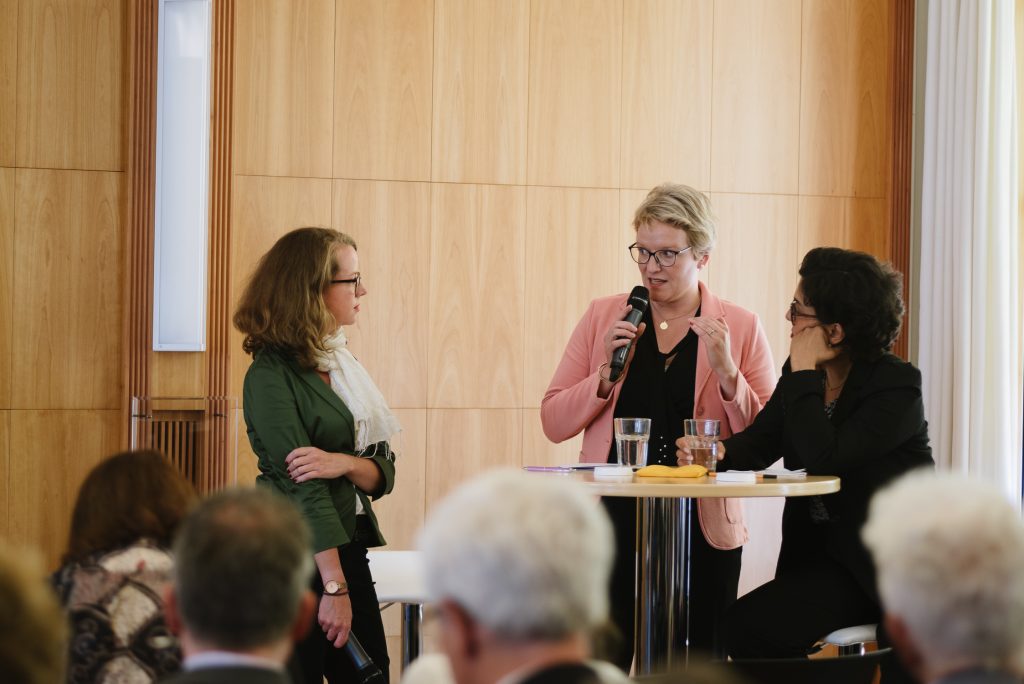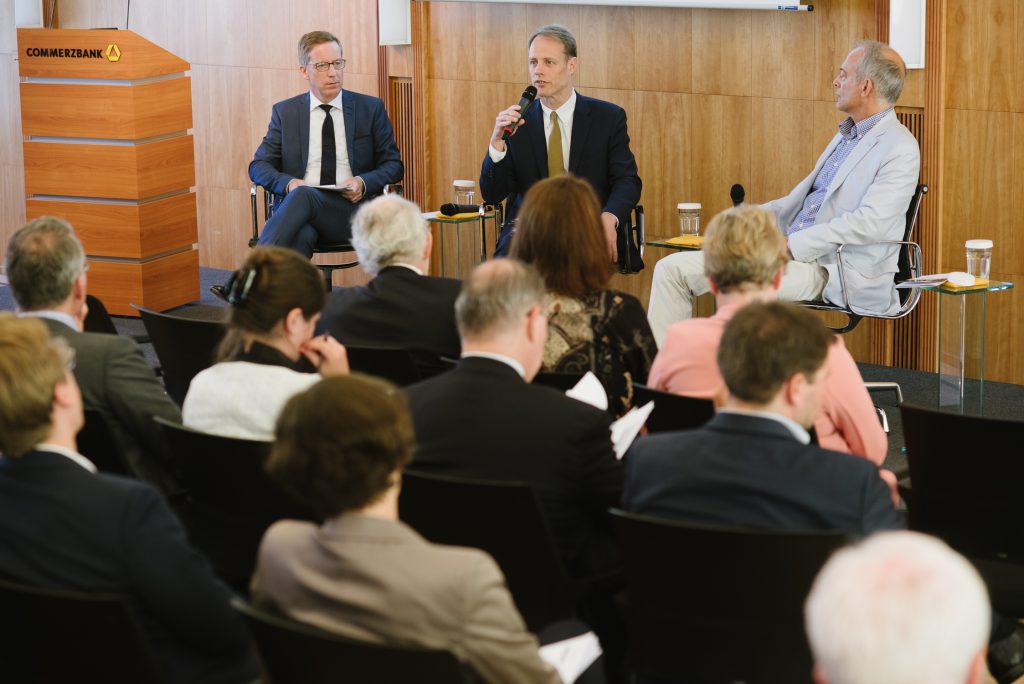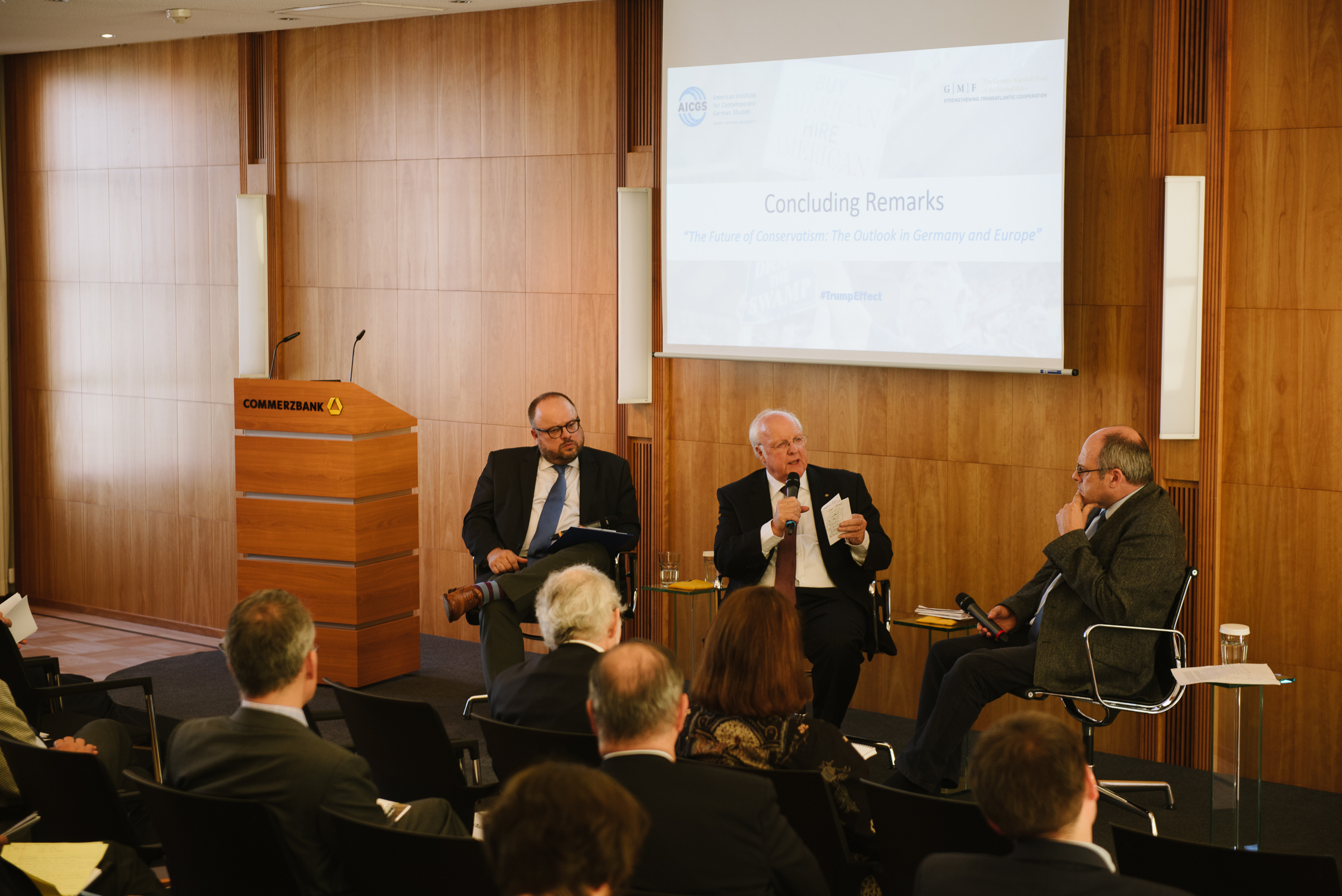
U.S. Geological Survey via Wikimedia Commons
The Imprint of Trumpism: Exploring Conservative America

Jackson Janes
President Emeritus of AGI
Jackson Janes is the President Emeritus of the American-German Institute in Washington, DC, where he has been affiliated since 1989.
Dr. Janes has been engaged in German-American affairs in numerous capacities over many years. He has studied and taught in German universities in Freiburg, Giessen and Tübingen. He was the Director of the German-American Institute in Tübingen (1977-1980) and then directed the European office of The German Marshall Fund of the United States in Bonn (1980-1985). Before joining AICGS, he served as Director of Program Development at the University Center for International Studies at the University of Pittsburgh (1986-1988). He was also Chair of the German Speaking Areas in Europe Program at the Foreign Service Institute in Washington, DC, from 1999-2000 and is Honorary President of the International Association for the Study of German Politics .
Dr. Janes is a member of the Council on Foreign Relations, the International Institute for Strategic Studies, the Atlantic Council of the United States, and American Purpose. He serves on the advisory boards of the Berlin office of the American Jewish Committee, and the Beirat der Zeitschrift für Außen- und Sicherheitspolitik (ZfAS). He serves on the Selection Committee for the Bundeskanzler Fellowships for the Alexander von Humboldt Foundation.
Dr. Janes has lectured throughout Europe and the United States and has published extensively on issues dealing with Germany, German-American relations, and transatlantic affairs. In addition to regular commentary given to European and American news radio, he has appeared on CBS, CNN, C-SPAN, PBS, CBC, and is a frequent commentator on German television. Dr. Janes is listed in Who’s Who in America and Who’s Who in Education.
In 2005, Dr. Janes was awarded the Officer’s Cross of the Order of Merit of the Federal Republic of Germany, Germany’s highest civilian award.
Education:
Ph.D., International Relations, Claremont Graduate School, Claremont, California
M.A., Divinity School, University of Chicago
B.A., Sociology, Colgate University
Expertise:
Transatlantic relations, German-American relations, domestic German politics, German-EU relations, transatlantic affairs.
__
Any effort to understand change in complex societies like the U.S. or Germany is a challenge for the foreign observer. One is tempted to employ frameworks that may not fit the full range of factors driving change and transitions at any given point. Yet making the effort to shed light on shared questions and maybe find some shared answers is an important task for transatlantic actors.
In a joint symposium organized by AGI and the German Marshall Fund on June 11 in Berlin, that effort was made with a focus on the changing parameters of conservative thought and policy in the U.S. Drawing on the expertise of American and European speakers, the agenda was crafted around both the narratives and the issues that are changing the dimensions of American conservatism and the way they are understood, shaped, expressed, and propagated.

The key note speaker—Michael Gerson—led off with a comprehensive look at the forces he sees as changing the face of the conservative debate in the U.S. His long-term engagement in Washington politics before turning to journalism gives him a particularly rich view of transitions within the Republican Party, some of which he forcefully criticized and others which he sees as long-term developments. In his view, large elements of the Republican Party have been transformed into a network of homogenized support for Donald Trump. The roots are anger, distrust, and resentment of Washington elites, but they did not emerge only with Donald Trump. Trump supporters fear their perceived loss of status and loss of identity; they’re worried about the future; and they’ve lost trust in individuals and institutions to address their concerns. Religious affiliations play into the toxic mix of single-issue politics like abortion or same sex marriage.
Two particular issues examined at the symposium—immigration and trade policies—are major catalysts in this political development. Two panels of experts probed both fact and fiction in discussion of challenges and choices in these contentious arenas. It was evident that reaching consensus on dealing with both domestic and transatlantic strains is difficult.



A final panel discussed the evolution of conservatism in Europe and whether comparisons with the U.S. are at all possible or useful. While the contexts of national debates in many European countries differ widely, there is also a wave of populist pushback against national governments across the continent, different in style and substance but nevertheless evidence of the same discontent and disruption within societies. The longing for leadership opens doors to those who would exploit that atmosphere, as can be seen with increased emphasis on nationalist emotions connected with antagonism toward the European Union. Politics in the UK, Hungary, Italy, and Poland all represent that trend. And Germany is seeing its long-term political consensus challenged in similar ways.

How long this period of political eruptions will continue to shake the foundations of politics on both sides of the Atlantic is not clear. But what is clear is that changes in the landscape of political, social, and economic arenas are going to leave significant trails behind them. This is what volcanic events do.








